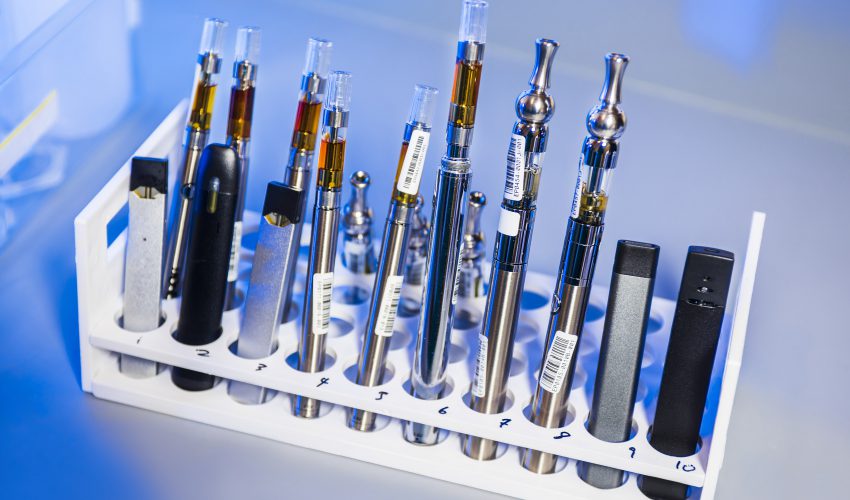FOR IMMEDIATE RELEASE
February 28, 2020
ATTORNEY GENERAL REYES LEADS EFFORT URGING FDA TO STRENGTHEN E-CIGARETTE ENFORCEMENT GUIDANCE
26 Attorneys General Encourage FDA to Expand Guidance to Include Menthol and Disposable, Refillable Products
SALT LAKE CITY– Attorney General Sean D. Reyes today announced he is leading a bipartisan coalition of 26 attorneys general along with Illinois Attorney General Kwame Raoul and Idaho Attorney General Lawrence Wasden, urging the Food and Drug Administration (FDA) to strengthen guidance the agency issued to explain how it will enforce regulations of electronic nicotine delivery systems, or e-cigarettes.
In comments submitted today, the coalition is encouraging the FDA to expand and strengthen its enforcement guidance by including menthol flavors and products that are not cartridge-based. Raoul and the coalition state that the current guidance creates loopholes that manufacturers can exploit and will not help decrease e-cigarette usage among youth.
“E-cigarette use has grown exponentially in the last few years, especially among Utah youth,” said Attorney General Reyes. “We need to do what we can to protect young people from being lured into a vicious nicotine addiction. These flavored, disposable alternatives to cigarettes have not proved to be any safer than other tobacco products.”
The FDA released guidance in January describing how the agency will prioritize e-cigarette enforcement resources. According to the guidance, the FDA will prioritize enforcement against flavored, cartridge-based e-cigarettes, with the exception of tobacco or menthol-flavored products. The FDA will also prioritize enforcement against e-cigarette products marketed toward minors or manufacturers that have not taken adequate measures to prevent minors from using their products. However, the guidance does not prioritize disposable products or refillable cartridge systems that are popular among youth.
Under the new guidance, mint-flavored e-cigarette products are included in the FDA’s enforcement priorities, and the coalition is urging the FDA to amend the guidance to include menthol flavors. The attorneys general point out that as a flavor derived from mint, menthol shares many of the same characteristics making it a convenient substitute for youths who would search for a flavor to substitute for mint. The coalition cites the FDA’s own data, showing that the use of mint and menthol flavors by high school e-cigarette users dramatically increased from 16 percent in 2016 to more than 57 percent in 2019. The coalition also points to the FDA’s admission that evidence has shown that individuals who already use flavored tobacco products will likely switch to other flavored tobacco products if their preferred flavor is no longer available.
In addition to menthol serving as a likely mint substitute due to the flavor similarities, the coalition states that the FDA’s decision to permit menthol is problematic because the guidance does not explain how the FDA will distinguish between the two similar flavors. The coalition expresses concern that the FDA will be forced to rely on packaging descriptions of the flavors, which the attorneys general argue creates a loophole which manufacturers can exploit by simply renaming the flavors on product labels.
The FDA claims its reasoning for allowing menthol is to avoid removing an incentive for adult smokers who might transition from using combustible cigarettes to “potentially less harmful” e-cigarettes. The coalition points to a 2020 Surgeon General report, which said there is not enough evidence to show that e-cigarettes increase smoking cessation. In fact, the coalition argues, the purported benefits of menthol’s availability to adult smokers should be outweighed by the risk it poses of attracting youth smokers.
Also in the comments, the coalition states that the FDA’s focus on cartridge-based products creates a loophole for self-contained, disposable products that are popular with youth. The coalition points out that with two of the most popular e-cigarette devices among high school students being disposable, the guidance will have the result of pushing youth toward refillable systems.
The letter includes the attorneys general of Alaska, Arizona, Arkansas, California, Colorado, Connecticut, Delaware, the District of Columbia, Hawaii, Maine, Maryland, Massachusetts, New Mexico, New York, North Carolina, Oklahoma, Oregon, Pennsylvania, Puerto Rico, Rhode Island, Texas, Utah, Virginia, Vermont, Washington, and Wisconsin in submitting the comments.
A copy of the comment letter can be found here.
###


